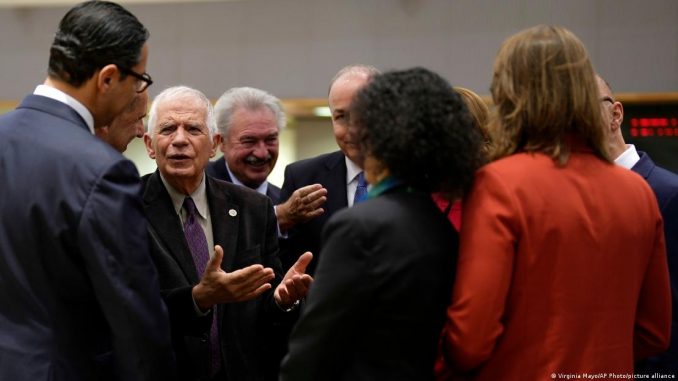
Divisions were increasingly clear among the European Union’s 27 foreign ministers in Brussels on Monday as they sought a common position on Israel’s intensifying military operations in Gaza after the October 7 Hamas attacks.
The EU, which has struggled to speak with one voice on the politically divisive Israeli-Palestinian question, issued a fresh joint statement on Sunday evening.
In it, the member states called for “immediate pauses in hostilities and the establishment of humanitarian corridors,” as well as the release of remaining hostages, but also re-emphasized Israel’s “right to defend itself in line with international law and international humanitarian law.”
The EU’s foreign affairs chief, Josep Borrell, said the call for pauses in fighting was designed to allow much-needed aid to enter Gaza.
This comes as the Hamas-run Health Ministry in Gaza says more than 11,000 people have been killed amid Israel’s retaliation for the October 7 attacks and as NGOs warn of deteriorating conditions at hospitals in Gaza.
“Less than 10% of what is necessary is getting through,” Borrell told reporters.
But Sunday’s statement also condemned Hamas, which the EU designates as a terrorist organization, for “the use of hospitals and civilians as human shields.” Israel accuses the militant group of embedding itself within Gazan civilian infrastructure for protection. Several EU ministers, including the Czech Republic’s Jan Lipavsky, echoed these comments in Brussels on Monday.
European Council on Foreign Relations (ECFR) expert Hugh Lovatt said that Hamas had clearly “sought to protect itself from Israeli attacks by using Gaza civilian infrastructure,” which was illegitimate. But he cautioned against the use of the phrase “human shield” because it could be misleading and risked absolving Israel of responsibility for attacks on civilian infrastructure.
Read more here www.dw.com